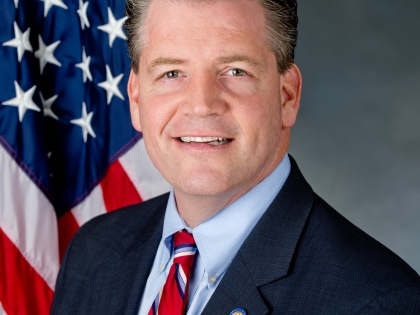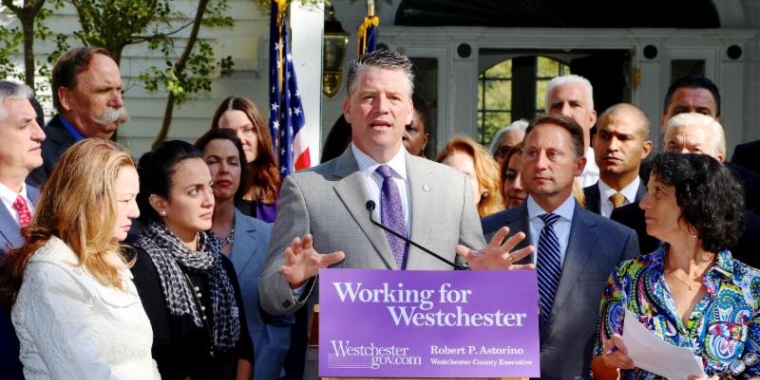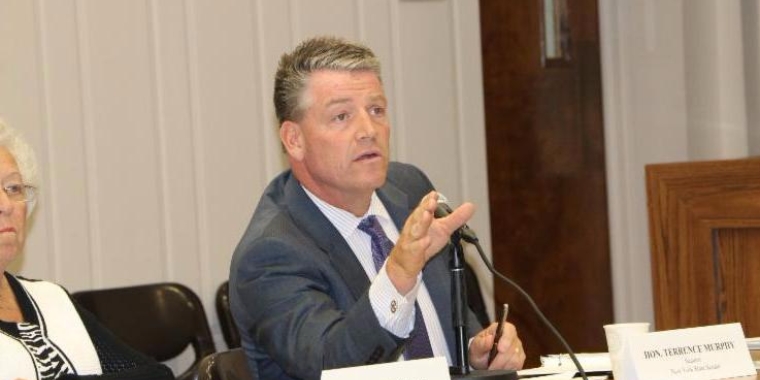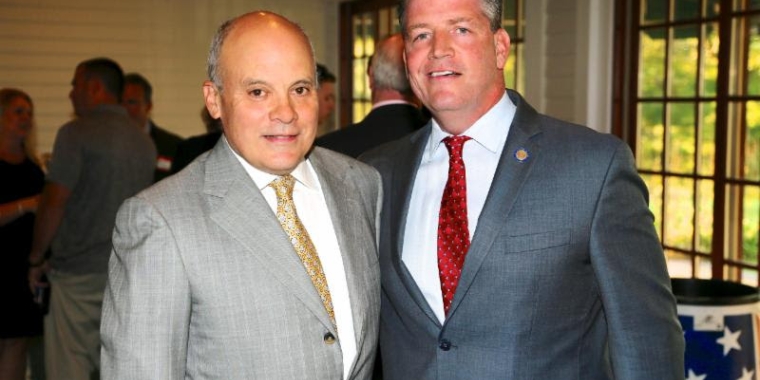
Senator Murphy joins Phillips and Young in Sponsoring Landmark Legislation to Tighten Sexual Harrassment Laws
December 19, 2017

ALBANY, NY - Harvey Weinstein. Matt Lauer. Al Franken. Roy Moore. They are all prominent members in the news, entertainment, and political communities who have been accused of sexual harassment. Every day the list of individuals accused of unacceptable sexual behavior grows by leaps and bounds. Senator Terrence Murphy, whose family includes a teenaged daughter, is among the growing ranks of outraged parents and concerned citizens seeking to strengthen the state's sexual harassment laws.
In response to the tidal wave of sexual harassment allegations that have swept the nation, Senator Murphy has partnered with Senator Catherine Young and Senator Elaine Phillips to help pass milestone legislation to combat all forms of sexual harassment. The Sexual Harassment Accountability and Protection Act will ban confidential sexual harassment settlements, prohibit mandatory arbitration of sexual harassment complaints, and expand protections for independent contractors. For the first time, this legislation would also write a definition of sexual harassment in state law. Currently, there is no standard definition, which has allowed victims to be subject to varying interpretations by judges.
"We have all watched the news and have seen the awful accounts of sexual harassment throughout our society. As a leader in our community I know actions speak louder than words," said Senator Murphy. "I am proud to sponsor this legislation and will work with my colleagues to ensure it is passed into law. Sexual harassment comes in all forms and threatens all members of society - men and women alike. We cannot continue to bury our heads in the sand on this critical issue but we must lead and set an example for the rest of the nation to follow."
Senator Phillips stated, "There is no place in our government, or society as a whole, for sexual assault or harassment. This landmark legislation aims to punish abusers, prevent harassment, and further protect all victims. Behind the revelations of recent weeks are real people - women and men who bear emotional scars from the harassment they endured and from the burden of remaining silent for so long. I applaud the courageous women who have come forward to share their difficult stories and hope this bravery will aid them with their personal healing process."
"While harassment can take many forms, from innuendo to outright assault, it cannot and must not be tolerated, at any level. As a society and as a state, we need to step forward to protect people from the discrimination and degradation of sexual harassment and abuse," said Senator Young. "Bringing this issue out of the darkness and into the light is the first step towards addressing this problem. The other component involves changing our laws to help prevent harassment, punish abusers and protect victims."
To help discourage serial predators, the Sexual Harassment Accountability and Protection Act will prohibit courts from accepting any settlements that include confidentiality agreements or provisions. This would help ensure that those responsible for acts of sexual harassment are held accountable for their actions. The Act will also provide employers with a greater incentive to institute strong anti-harassment policies and build a workplace culture that discourages such behavior.
The Act would prohibit mandatory arbitration for sexual harassment complaints. Mandatory arbitration clauses are often used by employers to force sexual harassment victims into private arbitration proceedings, which often limits their ability to seek legal action.
The new legislation expands the definition of "employer" to include those who engage the services of independent contractors. Currently, individuals who are freelance or contract workers cannot file sexual harassment complaints against the enterprises or individuals who have employed their services. This includes a broad and growing range of businesses that encompass approximately 40% of the workforce, including entertainment companies, news and media organizations, construction firms, real estate agencies, and hair salons, among others.
This legislation would close this loophole by extending to contract workers the same right to file sexual harassment complaints as individuals who are directly employed by the company or entity.
In addition, the Sexual Harassment Accountability and Protection Act adopts the definition of "sexual harassment" into state law. Although the NYS Division of Human Rights has a definition, it is used administratively. This has left sexual harassment cases open to interpretations by judges, who may improperly dismiss them.
Strengthening the state's sexual harassment laws will be a priority during the upcoming 2018 legislative session. Governor Andrew Cuomo has indicated that he will release his own proposal when he delivers the State of the State address in early January.



